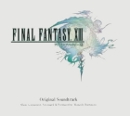
|
|
The Legend of Zelda Ocarina of Time Re-Arranged Album :: Review by Jared
 |
Album Title: | The Legend of Zelda Ocarina of Time Re-Arranged Album | Record Label: | Tokuma Japan Communications |
| Catalog No.: | TKCA-71824 | |
| Release Date: | December 22, 1999 | |
| Purchase: | Buy at CDJapan |
Overview
Koji Kondo's masterful soundtrack to The Legend of Zelda: Ocarina of Time is one of the most popular out there. Though the Nintendo 64 had sub-par sound quality, his beautiful melodies and compositions still shone through. Fans of the game will always reminisce about the game's various levels, characters, and feats when they hear the tunes.
Thankfully, a few arranged albums were released using Ocarina of Time's material. One of these was Hyrule Symphony, an album featuring faithful string quartet arrangements of some favorite melodies. The other arranged album is this, the Ocarina of Time Re-Arrange. Instead of remaining completely faithful and making very conservative arrangements, the remixers and arrangers who worked on this album aren't ashamed to experiment a bit. And a bit goes a long way, though not in vain; this arranged album is top-notch and very enjoyable, especially to fans of the beloved series.
The album consists of a mix of live performance and synth usage. Some tracks combine the two, and others are strictly one or the other. The choices were well made on which tracks received what treatment, and each piece is very well arranged in the chosen style.
Body
At the forefront is "Title Theme." The title theme of Ocarina of Time wasn't only a soundtrack highlight, but one of the highlights of the entire series. The original was very soft and relaxing and featured piano and a sweet ocarina melody. This time around, it is well-arranged in a light techno style. The opening is perhaps the most effective part; the strong burst of synth is a great lead-in to the rest of the track, which later experiments with a few acoustic elements laid in with the synth.
"Lost Woods" works similarly to "Title Theme," with an emphasis on synthesized sounds. This track also makes great use of flutes (probably synthesized, but impeccable quality), which is sort of a recurring element in many of the pieces. "Epona's Song," is strictly performance based. Featuring a twangy, country style, Emiko Shiratori of "Melodies of Life" fame sings the subtle and famous melody of Link's loved horse companion. It is beautiful all things considered, and takes a few deviations from the original such as a short drum and bagpipe section. Overall, everything in the arrangement works well together to enhance the mood and beauty of the nostalgic original piece.
Similarly, "Kotake & Koume's Theme" is based on the sound of a real performance. Though it still uses synthesized sounds, they are realistic and act as real instruments would. This piece has a very mysterious and ethnic air to it that is very refreshing and different from the rest of the album. One of the best tracks on the album, "Last Battle," is largely based on ambience. After a powerful introduction, a percussive beat kicks in and the rest mostly consists of synth chord progressions with only a few, slight melodic sections. It plays out in a similar fashion to "BT 'ultimate'," from the Unlimited SaGa soundtrack, combining ambience, techno, and acoustic elements into a refined and successful package.
"Hyrule Field" is probably the most upbeat and adventurous arrangement of them all, and appropriately so. Like several others, it uses acoustic elements set to synthetic backgrounds and beats, and it uses it to great effect. Such a combination ensures both constant interest and emotional expression. Clocking in at just under six minutes, it is also the longest track on the album and therefore undergoes the most development and change. It has several contrasting sections, including one that is largely dissonant, and later places a very large emphasis and live instruments.
"Battle" and "Middle Boss Battle" are both very upbeat and tense, though they don't hold a whole lot of particularly interesting material. They are too repetitive and the drum loops are much too annoying to fully appreciate the tracks. Despite this, they are still fairly solid arrangements that don't hurt the album as a whole.
The most conservative arrangement without a doubt is "Temple of Time." It is merely the original piece with enhanced sound quality. About halfway through, a new female voice part accompanies the male voice, but it doesn't do much to help the track. Similarly conservative is "Shop," which simply keeps the same melody as the original and moves it around throughout the instrumentation. A few new additions, such as the brassy backgrounds, go mostly unnoticed.
"Zelda's Theme" and "Great Fairy Fountain" are both slow and from the heart. They both combine synthetic and acoustic to great effect, and drop the use of repetitive drum loops in favor of glassy synthesizers. They stay fairly faithful to the originals, but some new string material is a breath of fresh air into the melodies and offers a much warmer overall sound.
Summary
Despite containing a few sub-par tracks, as a whole this arranged album is top notch. None of the tracks are bad, and most are a superb experiment with the original material. Fans of the series will love the arrangements, and even if they don't, they still have Hyrule Symphony if they are looking for less 'liberal' arrangements of their favorite pieces. My only true gripe is with the lack of "Gerudo Valley," arguably one of the most popular and loved themes of the entire gaming industry. Overall, this is a fine album, one that fans will likely return to time and time again.

